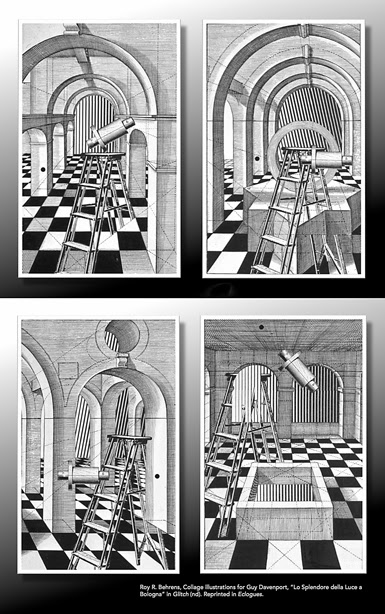Above Roy R. Behrens,
Spycraft. Digital montage © 2021.
Fritz Heider, The Life of a Psychologist. Lawrence: University Press of Kansas, 1983, pp. 74-75—
When I think of those summer days in Naples [Italy], I have a dim memory of noisy movements of masses of people, a surging of multitudes with much laughter and cheerful, restless activity. People wanted to get in touch; everywhere one felt that they had a need for human contact. And this seemed especially strong when a stranger appeared—he stimulated them and aroused their curiosity. Perhaps the frequent cases of young people who begged may have stemmed less from poverty or greed than from a compulsion to get involved with a stranger and establish some sort of contact. What they seemed to love above everything were little games of joking make-believe, and begging provided lots of opportunities for that. Once I passed two boys sitting on a wall, and when they saw me, they begged for cigarettes. I had seen that one of them had a box full, and I said: “Why do you beg? I can see that you have lots already.” They protested, “No, no”; and one of them took the cigarettes out of his pocket and handed them to the other. He knew that I saw what he had done, and he said, laughing, “I have no cigarette!” When I told him that I had seen him give them to the other boy, he answered, “Those are my father's cigarettes.” All this was spoken in a sort of theatrical comic way, with much laughter and many playful gestures, all as if they were telling fairy tales and hoping that the listener would join with them in the game.
•••
VIDEO LINKS
Nature, Art, and Camouflage
Art, Women's Rights, and Camouflage
Embedded Figures, Art, and Camouflage
Art, Gestalt, and Camouflage










